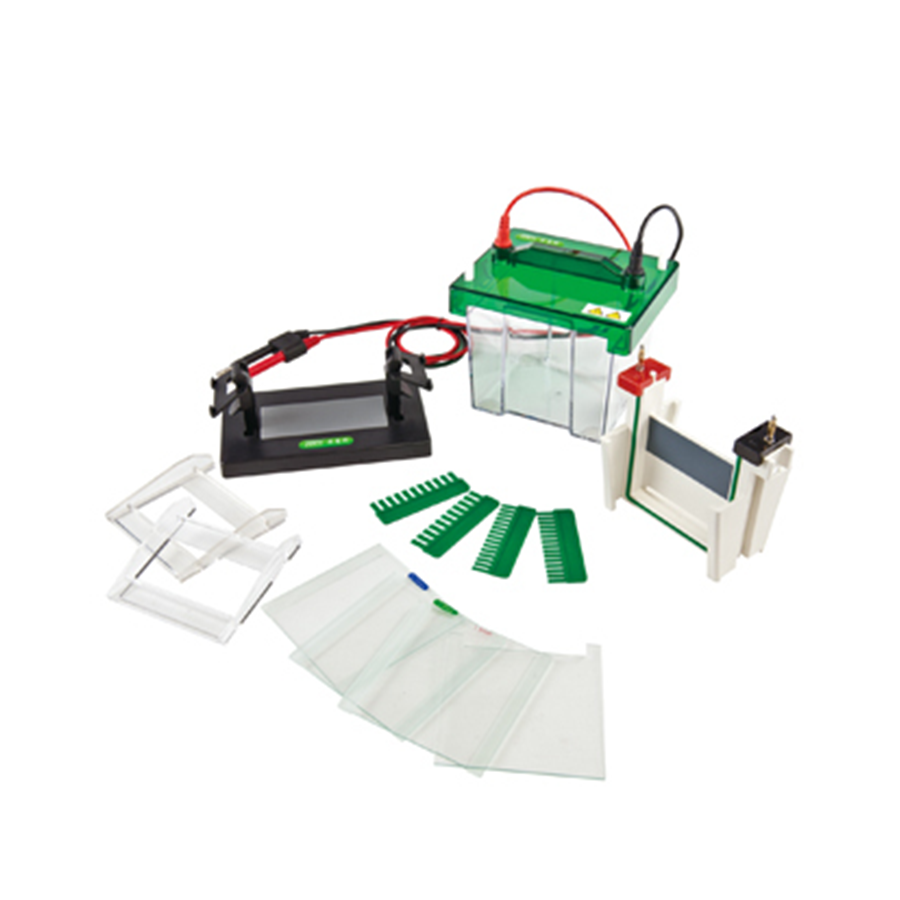Electrophoresis is a powerful and highly efficient technique used in laboratory testing that allows scientists to separate and analyze different components of a liquid sample, such as proteins or DNA. This technology has shown a significant impact in everything from genomic research to advancements in patient treatment, paving the way for personalized therapies.
Despite its ability to provide precise and detailed results, electrophoresis is not without its drawbacks. For example, depending on the complexity of the sample, it can be a time-consuming technique. Additionally, some electrophoresis equipment can be costly to purchase and maintain.
We understand that you need equipment that delivers maximum value to your laboratory. We invite you to visit https://kalstein.co.in/category-product/laboratory-line/electrophoresis-laboratory-line/, to immerse yourself in our universe of cutting-edge technology equipment. Our prices are competitive and accessible, we combine the convenience of online shopping with the guarantee of an exceptional product. Because you deserve the best, we create and offer top-tier laboratory equipment. Make your choice today, where science comes to life. https://kalstein.co.in/
Comparison with High-Performance Liquid Chromatography (HPLC)
Electrophoresis is often compared to High-Performance Liquid Chromatography (HPLC), a competitive method used to separate compounds in a liquid mixture. HPLC can handle a wide range of sample sizes and provides relatively fast processing times, an efficiency in laboratory testing that many scientists appreciate.
However, HPLC has its own challenges. It requires the use of expensive reagents and solvents, raising environmental and safety concerns. In contrast, electrophoresis uses standard pH buffers, making it a more environmentally friendly option.
Comparison with Mass Spectrometry
Another significant competitor in the field of biological sample analysis is Mass Spectrometry. This highly sensitive and versatile procedure can identify and quantify components in a sample with exceptional precision, which can be critical for improving patient treatment.
However, its highly specialized nature can also be a drawback. Mass spectrometers can be extremely expensive and require highly trained personnel for their use and maintenance. In contrast, electrophoresis equipment tends to be more accessible, an advantage that distinguishes it and makes it a frequent choice in laboratories around the world.
Comparison with Spectrophotometry
Spectrophotometry also occupies space in this market. This method is based on the absorption or emission of light to analyze the concentrations of substances within a sample, a highly attractive feature for many clinical and research applications.
Despite its applicability, spectrophotometry is limited in its resolution of highly complex samples. In contrast, electrophoresis can separate and analyze multiple components simultaneously, with exceptional efficiency in laboratory testing.
Advantages and Disadvantages
The advantages of electrophoresis are clear. From laboratory testing efficiency and improvements in patient treatment to application versatility, it has much to offer. However, processing times and costs can be seen as disadvantages.
Conclusion
In summary, electrophoresis plays a crucial role in sample analysis in laboratories around the world. While there are competitors that offer similar capabilities, electrophoresis stands out, particularly in terms of efficiency in laboratory testing and improvements in patient treatment. Although the choice of the appropriate technique largely depends on the specific requirements of each study, electrophoresis remains a proven and solid option for many scientists.


